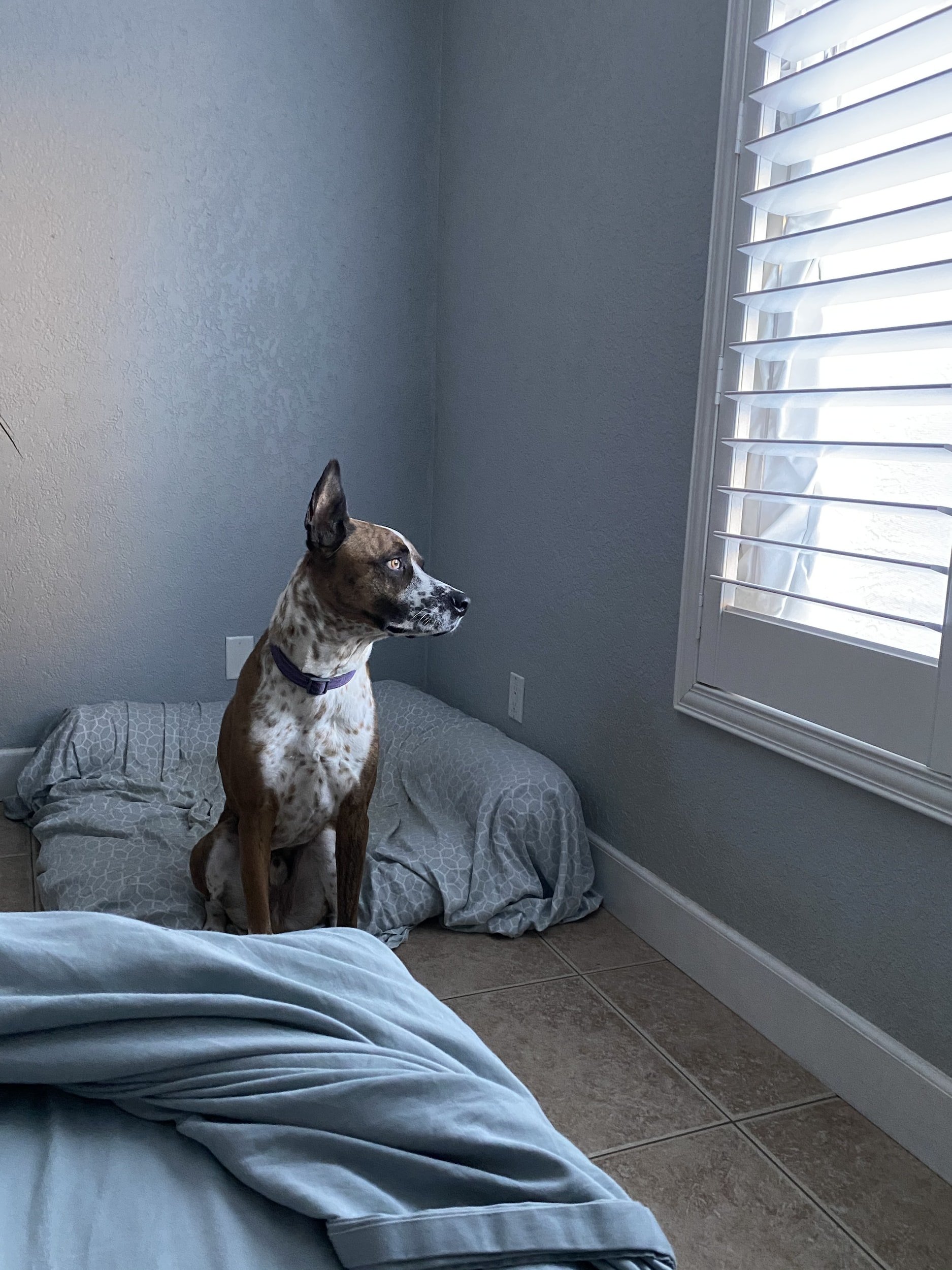Separation Anxiety in Dogs
Separation anxiety is a serious behavioral disorder that affects millions of dogs worldwide.
It is characterized by a dog's excessive distress when left alone, and can manifest in a variety of destructive or self-injuring behaviors, such as:
Barking, whining, howling
Chewing, scratching, or digging
Defecating or urinating in the house
Escape attempts
Self-harm
Separation anxiety can have a significant impact on both the dog's and the owner's quality of life. Dogs with separation anxiety may be destructive, anxious, or destructive when left alone, and owners may feel guilty or stressed about leaving their dog.
There is no one-size-fits-all solution for separation anxiety, but there are a number of effective treatment options available. The most EFFECTIVE treatment approach is systematic desensitization. Desensitization involves gradually exposing the dog to being alone for increasing periods of time.
Another less effective approach is counterconditioning. This involves teaching the dog to associate being alone with positive experiences, such as a treat or toy.
We do not counsel clients to try counterconditioning for a variety of reasons but mainly because it just DOESN’T GET THE JOB DONE!
In some cases, medication may also be helpful in treating separation anxiety. Medication should only be used in conjunction with behavioral therapy, and should only be prescribed by a veterinarian or veterinary behaviorist.
If you think your dog may have separation anxiety, it is important to seek professional help as soon as possible. With the right treatment, most dogs with separation anxiety can learn to cope with being alone and live happy, healthy lives.
Here are some tips for preventing separation anxiety in dogs:
Puppies should be gradually introduced to being alone for short periods of time, starting when they are very young.
Never leave your dog alone for longer than they are comfortable, such as for an entire workday.
Make sure your dog has plenty of exercise and mental stimulation before you leave.
Provide your dog with a safe and comfortable place to stay when you are gone.
Do not punish your dog for destructive or anxious behaviors when you return home.
If you think your dog may have separation anxiety, seek professional help immediately.


